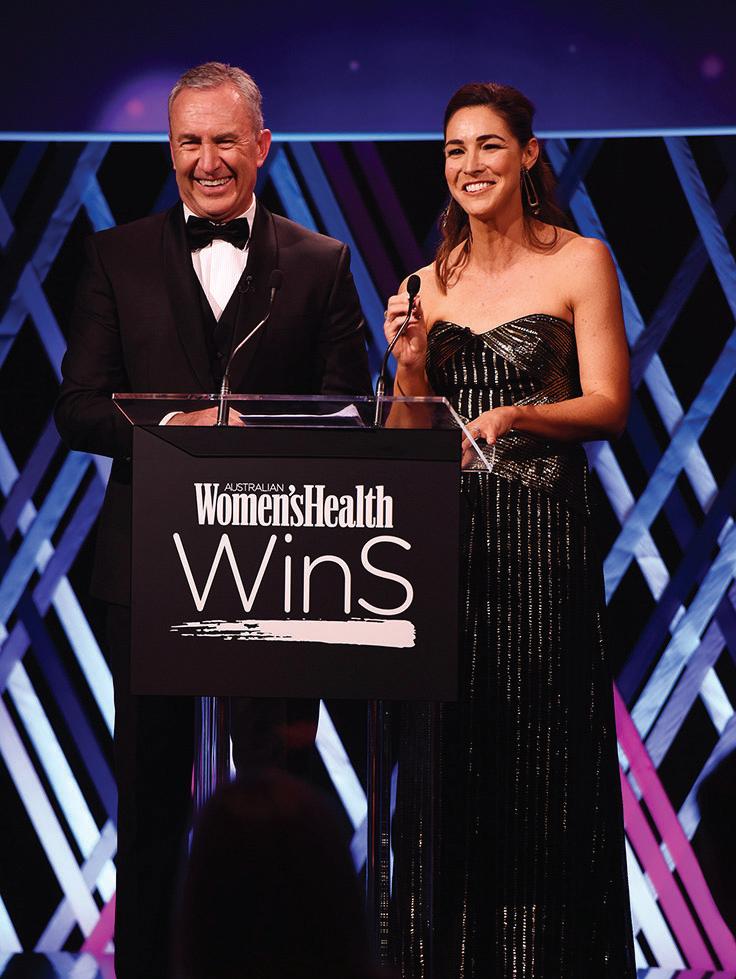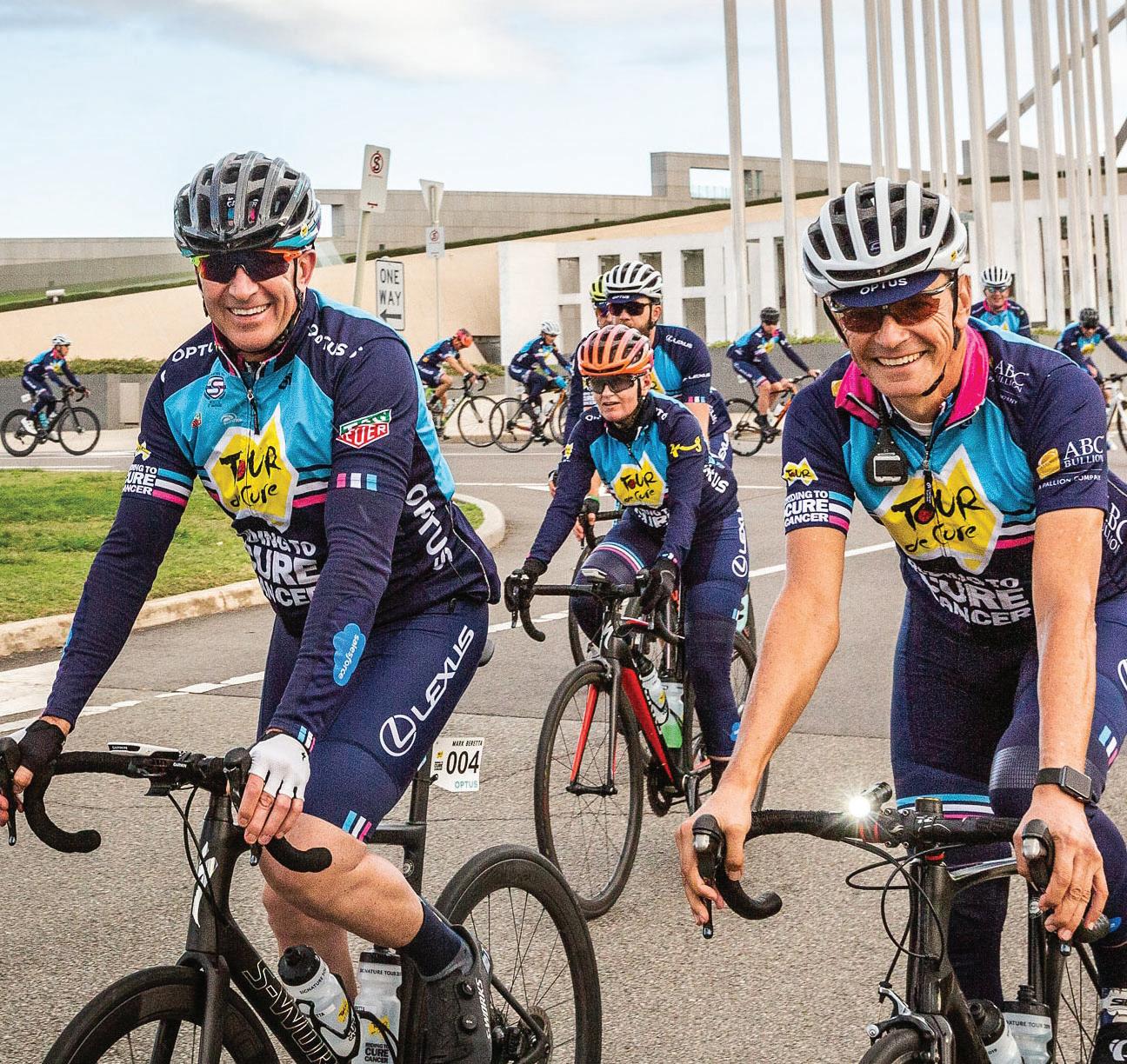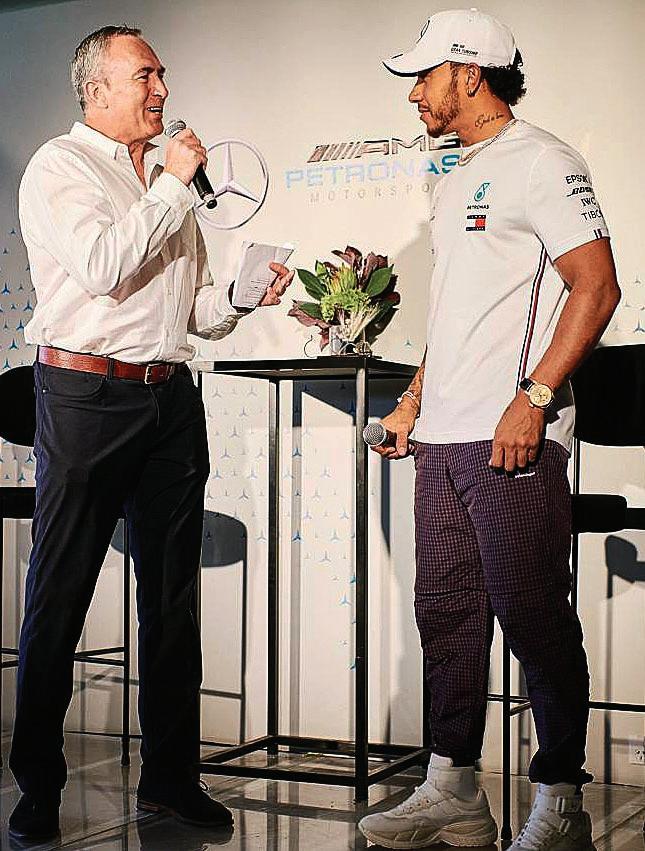
7 minute read
Ad Alta Virtute Issue 33
Where are they now? Stories from Past St Joseph's students
GRAB OPPORTUNITIES & HOLD ON TIGHT! Advice that has led to some amazing adventures for St Joseph's Old Collegian Mark Beretta one of our "Where are they now" guests in the 2020 Ad Alta.
Advertisement


You’re On! Mark Beretta (SJOC 1983 & SJC Foundation Member)
The light goes red and you talk. Simple really. And I’d done it a million times. It was just tougher than it’d been before, as the clock ticked over 6.31pm, Monday 25th September, 2000. The News had just fi nished and the Sydney 2000 Olympic Games telecast was resuming. After a last minute reshuffl e of the Seven commentary team, I found myself in the hot seat – hosting the Olympic telecast on the most watched night in the history of Australian television – the evening of Cathy Freeman’s iconic 400 metres run. The sense of occasion was enormous. The build-up to this moment stretched back 4 years to the Atlanta Olympics where Cathy fi nished with a silver medal and hugged her mum after that race, whispering, “Are you disappointed Mum?” Of course she wasn’t, and she certainly wouldn’t be four years later. The next Olympic Games in Sydney had come around and Cathy was ready. Cameras had followed her all day. The attention was enormous and inescapable. That race still gives me goose bumps. I remember every moment of it. Afterwards the national celebration brought all of us closer together. And luckily for me, the night went smoothly on air, with almost 8-million viewers, and it still remains the most watched event in Australian TV history. I’ve had a lucky ride with Seven. My interview for the job back in 1995 was in the car park of the Seven Melbourne’s Dorcas Street headquarters. Sport Producer, Bill Cannon, gave me a job and I walked into the building and pulled up a desk next to giants of the industry - Bruce McAvaney, Sandy Roberts, Jim Wilson, and Peter Landy. It was daunting, but I was in heaven. Within weeks of landing at Seven, the network announced it had locked in the rights to broadcast the summer and winter Olympic Games from Atlanta 1996 right through to Beijing 2008. It was amazing to board the fl ight to Atlanta with over 300 colleagues for the lead-up Games to Sydney 2000. Tokyo 2020 (in 2021!) will be my 11th Olympic Games. Can’t believe that, and I never take it for granted. My work has put me at the greatest moments in sport, here and overseas. I have sat down to chat with every star of world sport. Roger Federer and Lewis Hamilton are at the top of my list of recent favourites. But it’s still better playing sport than talking about it. As a kid, my Dad taught us to water ski on the Barwon River. It was the thing we all did as a family and we all loved it. Looking back, it was the family time spent together that made it so memorable. Being out on the water has always been my passion – an escape. I know every part of the Barwon and it’s a great river that will always be special to my family for all the good times we shared. Many times I could have given skiing away, but now I’m so glad I stuck at it. It gave me incredible adventures around the world. I was fortunate to win ten Australian Championships, be runner up at the Singapore International Masters and set a record in the USA. That led me to be able to coach in the USA and Japan, and later show off my sport in various ski shows around the world. It’s nice to stick at something, and get it done. That sense of achievement is euphoric, and the bonus is you gain a new skill. My sport helped my get through my Engineering degree. I never found the four-and-a-half years at university easy going, and I had to keep telling myself, “I’m going to fi nish this.” Getting through and putting that degree under my belt remains one of my favourite achievements. It also gave me a backstop, something to fall back on if my future ventures didn’t go the way I hoped. I really enjoyed working as an engineer. I started out rolling steel at BHP Westernport, then spent time with Andersen Consulting, before settling at Honeywell, initially as a project engineer, then a sales and senior sales engineer.



I worked on projects like the security and surveillance system at Crown Casino, the fi re detection system at Collins Towers, and the communication network for the Melbourne Stock Exchange. All the while, I’d been keeping up my love of sport by reporting on it on radio. I got a foot in the door at 3GL Geelong in 1988, during my last year of university at Swinburne. I’d read sport with the news each morning, before driving to Melbourne to uni for the day and then back each night. They were long days, but being busy was becoming addictive. 3GL was bought out by the Hoyts Media group who owned the Triple M stations, and that opened doors in Melbourne. I moved to Triple M Melbourne (a lot closer to uni!) to work alongside Eddie McGuire, and Eddie eventually got me started at Channel 10 Melbourne, where I spent a year before joining Seven. Christmas is a good time to stop and think about where you are, and where you’re going. In 2010, I stopped, looked around and decided I could do more to help others. I had a long discussion with my wonderful wife, Rach, who has always been my greatest sounding board, and we both liked the look of a cancer charity called Tour de Cure. With the support of the Sunrise team, we came up with a plan for me to ride along on their 10-day, 1,500km journey from Sydney to the Sunshine Coast, and do my daily sport reports along the way. I almost died doing it, but we got to the fi nish and raised a record amount of just over $1.5 million. Last year marked my 10th Tour de Cure ride, and we rode from Sydney to Geelong over the Snowy Mountains. The rides are always hugely challenging. I still hurt for the full 10 days and every day think about tossing it in. But how could anyone give up when people are dealing with cancer, and relying on us for funds? So here’s why I push on. Since those early years, Tour de Cure has raised $60 million for cancer research, support and prevention. We’ve funded almost 400 projects by Australian researchers. That’s led to 30 major breakthroughs in cancer research and treatment. Bottom line is, Tour de Cure has saved a lot of lives, and will save a lot more. I am so proud to be part of the team, and so proud of their work. Getting our kids, Ava (Yr 10) and Dan (Yr 7), exposed to charitable work and the importance of giving your time and effort to help others has been a priceless upside. At a recent Tour de Cure ride, Ava came along as a volunteer and it was one of my greatest memories seeing her at the stops and out along the road working to help the event. Last Father’s Day I was given the honour of Australian Father of the Year, for my work with Tour de Cure and other charities, and for getting the family involved. You should never stop challenging yourself, learning, and chasing your dreams. I’d always regretted not serving in our military, so at the start of last year I passed the selection tests and joined the Army Reserve. I work a couple of days a week as a Captain in Public Affairs at Forces Command, the group responsible for 20,000 soldiers and making sure they are always ready for the roles the nation wants them to perform. It’s been a great experience. I’ve met some incredible people who are devoted to serving Australia, and I’ve learned a ton, with 28 new qualifi cations! Some of the best early advice I had from my Dad was to grab every opportunity life throws at you, and hold on tight. It was great advice, it’s certainly made life interesting, and I look back at my fi rst half century with satisfaction and with a few things ticked off my dream list. Even better, I head into the next era with more enthusiasm than ever, and with more ambitions to chase! Mark Berett a





